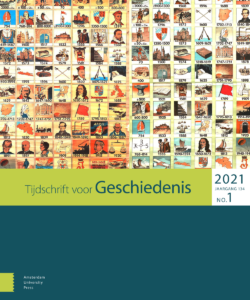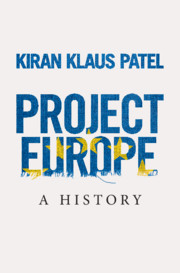News
New publication: Alessandra Schimmel’s book review of ‘Project Europe: A History’ by Kiran Patel
 The latest issue of Tijdschrift voor Geschiedenis (TvG) includes Alessandra Schimmel’s book review of Kiran Klaus Patel’s book ‘Project Europe: A History’, published in 2020 by Cambridge University Press.
The latest issue of Tijdschrift voor Geschiedenis (TvG) includes Alessandra Schimmel’s book review of Kiran Klaus Patel’s book ‘Project Europe: A History’, published in 2020 by Cambridge University Press.
The series of crises that have afflicted the European Union for the past decade – the eurozone crisis, the migrant crisis, Brexit – appear to have yielded profound rifts in the European integration project. To Kiran Klaus Patel, this necessitated a thorough examination of the history of ‘Europe’, and in particular of the myths, criticisms, and realities surrounding it. The result, ‘Project Europe: A History’, is an original and vibrant account of European integration, showing with a multitude of perspectives that the European project is an intricate and erratic one.
 Rather than adhering to previous publications that stress the progressive nature of European cooperation, Patel asks how and why the integration process took shape as it did. By broadening both the time span (to include the period before 1950) and the array of actors (making room for citizens, activists, interest groups, and other non-state actors, in addition to the more familiar political leaders and institutions), the book presents a dynamic narrative of the integration of Europe.
Rather than adhering to previous publications that stress the progressive nature of European cooperation, Patel asks how and why the integration process took shape as it did. By broadening both the time span (to include the period before 1950) and the array of actors (making room for citizens, activists, interest groups, and other non-state actors, in addition to the more familiar political leaders and institutions), the book presents a dynamic narrative of the integration of Europe.
Moreover, Patel convincingly shows that the current challenges for the EU are hardly unique phenomena: rather, they form an integral part of European integration. The title of the book, ‘Project Europe’, therefore reflects Patel’s aim to show the unsettled and unpredictable history of the European project.
Read the full article (in Dutch) here: https://www.aup-online.com/content/journals/10.5117/TVG2021.2.028.SCHI

